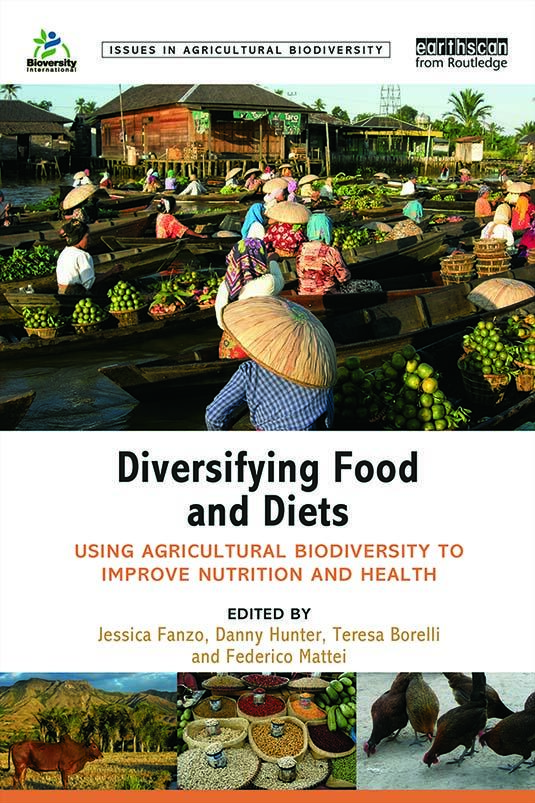Diversifying food and diets for improved nutrition and health

A new book, Diversifying Food and Diets: Using Agricultural Biodiversity to Improve Nutrition and Food Security, explores the latest research on the role of agricultural biodiversity in improving diets, nutrition and food security. Read more in this 2013 Annual Report story.
A new book, Diversifying Food and Diets: Using Agricultural Biodiversity to Improve Nutrition and Food Security, explores the latest research on the role of agricultural biodiversity in improving diets, nutrition and food security. It identifies research and implementation gaps that need to be addressed to promote the better use of agricultural biodiversity in food-based approaches that tackle malnutrition and food security. It also includes 12 case studies from around the world that showcase success stories.
Diversifying Food and Diets includes forewords by Braulio Dias, Executive Secretary for the Convention on Biological Diversity, and United Nations Special Rapporteur on the Right to Food, Olivier De Schutter, who comments: “This book is important and deserves a wide readership. Only once governments are convinced of the importance of agricultural biodiversity shall they implement the policies that are urgently required to move away from the direction of agricultural development that is dominant today.”
Danny Hunter, Bioversity International scientist and co-editor of the book series comments: “It is essential to understand how the global agricultural system and the benefits derived from agricultural biodiversity influence the drivers of global dietary consumption patterns, nutrition and health status, in particular in the developing world … As this book highlights, local biodiversity has the potential for contributing to food security and nutrition, as well as for enhancing adaptation to global climate change.”
Issues in Agricultural Biodiversity, a book series published by Earthscan/Routledge in association with Bioversity International, is the only series of its kind devoted to reviewing the current state of knowledge on agricultural biodiversity and how it can be used to improve people’s well-being and food and nutrition security. The series identifies research gaps, summarizes lessons learned and offers recommendations for future research and development planning.
There are now six books in the series, on topics including conservation of genetic resources and the social, policy and legal aspects of managing biodiversity in agriculture. All are available for free download from the Bioversity International website. More book titles will be published in the near future.
